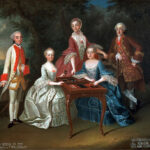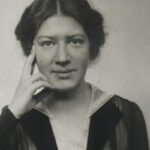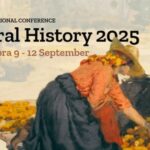Arbeitskreises Sexualitäten in der Geschichte (AKSG) (PDF)
Zeit: 24.-26.04.2025
Ort: Hamburg
Einreichfrist: 30.09.2024
Politische und andere soziale Bewegungen weisen mit unübersehbarer Regelmäßigkeit eine enge Beziehung zur Sexualität bzw. zum Sexuellen auf. Dies mag bei den jüngeren, (selbst)erklärtermaßen ›sexuellen Revolutionen‹ unmittelbar einleuchten – etwa um und nach 1968, in den bürgerlichen Reformbewegungen um 1900 und bis heute in Bewegungen zur ›Befreiung‹, Anerkennung oder Normalisierung sexueller und geschlechtlicher Minoritäten. Der Rekurs auf das Sexuelle fällt aber auch in konservativen oder faschistischen und schlicht antiliberalen Bewegungen unmittelbar ins Auge (vgl. z.B. die Arbeiten von Dagmar Herzog, Klaus Theweleit, Sebastian Winter). So sind sexuelle Motive etwa sowohl virulent in der Konstruktion des jeweiligen Feindbildes – häufig mit antisemitischer und rassistischer Konnotation als vermeintlich sexuell ausschweifend, übergriffig, degeneriert, tierisch und in jedem Falle gefährlich. Sexualität wird aber auch in Dienst genommen in der Illustration eigener (auch: sexueller) Potenz – in Verknüpfung mit der Entwürdigung anderer, bis hin zum systematischen Einsatz sexualisierter Gewalt in Terror- und Kriegshandlungen. Die Modi der Bezugnahme auf Sexualität variieren zwischen unterschiedlichen Bewegungen sehr stark – von intendierten und strategischen Einsätzen bis hin zu eher unbewussten Mobilisierungen sexueller Phantasien und Ressentiments.
Auf der sechsten Jahrestagung des Arbeitskreises Sexualitäten in der Geschichte in Kooperation mit der Forschungsstelle für Zeitgeschichte in Hamburg und dem Institut für Sexualforschung, Sexualmedizin und Forensische Psychiatrie am UKE Hamburg-Eppendorf interessieren sich die Veranstalter:innen generell für politisierte Sexualitäten insbesondere im Kontext von politischen und anderen sozialen Bewegungen sowohl im progressiven, subversiven oder liberalen Spektrum wie auch im Zuge konservativer oder faschistischer und antiliberaler Strömungen. Inwiefern wird Sexualität bzw. Sexuelles hierbei immer wieder zum Kampffeld gemacht, auf dem (stellvertretend oder als inhaltliches Kernanliegen) sexuelle Motive, Phantasien, Praktiken, Hierarchien und Normen verhandelt, produziert und transformiert werden? Was zeichnet offensichtlich oder stark politisierte Sexualitäten dabei gegenüber sehr viel weniger oder gar nicht politisierten Sexualitäten aus? Wie gestaltet und verändert sich in diesem Rahmen möglicherweise sowohl das Sexuelle als auch das Politische? Für wen und mit welchen Folgen? Weiterlesen und Quelle … (Web)

 FWF-Projekt „Adelige Geschwister. Vermögensarrangements und soziale Konfigurationen“; Margareth Lanzinger, Claudia Rapberger und Florian Andretsch
FWF-Projekt „Adelige Geschwister. Vermögensarrangements und soziale Konfigurationen“; Margareth Lanzinger, Claudia Rapberger und Florian Andretsch  Waschsalon Nr. 2
Waschsalon Nr. 2  Seventh biennial conference of the European Rural History Organisation (EURHO)
Seventh biennial conference of the European Rural History Organisation (EURHO)